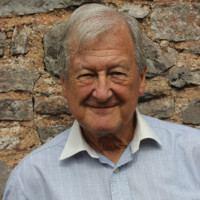By Amanda Hamilton, Patron of NALP
John Stacey Hibbert founded NALP as The National Association of Paralegals in 1987.
I first met him in 1997. At the time I was running a training programme for paralegals, and I asked him to accredit my course.
This was at a time when no-one in this country knew what a paralegal was or what they could do. John had brought the concept of ‘paralegal’ over from America where the profession had already been established for some 30 years. However, paralegals in the US can only assist Attorneys in law firms and it is illegal for them to branch out and offer legal services to the public.
But John did some research and realised the potential that the role of the paralegal could have in England and Wales.
NALP started life as a professional membership body for paralegals, originally offering membership to those working in law firms who were specialists in law but who had not qualified as solicitors. We used to call these wonderful individuals, ‘managing clerks’. These specialists had gained their expertise by experience, learning on the job, many having joined a firm straight from school. John was one of those individuals.
Over the next few years, John developed the first ever paralegal course: The Higher Certificate in Paralegal Studies, which was delivered by around 20 colleges in the Southwest of England. It was immediately popular.
John was also one of the people responsible for pushing for a private members’ Bill about offering recognition to conveyancers in law firms who were not solicitors. The result was the creation of the Council for Licensed Conveyancers.
In the early 2000s The Law Society recommended that students who could not afford to do the Legal Practice course should consider working as a paralegal instead, and started passing enquiries to NALP. This prompted John to develop a post graduate course. Both the courses he developed were the forerunners of NALP’s current Level 4 and Level 7 Diplomas.
In 2004, after wide consultation, John created the idea of Licensing for those experienced paralegals who wanted a higher status and who wished to branch out on their own. And the organisations’ name changed to The National Association of Licensed Paralegals.
John was an innovator; he was my friend and my mentor. We had many discussions about the state of the legal profession and how it has changed over the years, and he would always make a point to meet up with me whenever he was in London (he was based in Cornwall).
When his wife persuaded him to retire in around 2007, (I’m not sure he really wanted to do so) he offered me the opportunity to take over NALP which I did in February 2008. We remained in constant contact until his death.
The last email I received from him was three weeks before he passed. He said he was in Spain, having a great time and feeling good and that he was determined to come along to National Paralegal Day 2024 at the Law Society.
Unfortunately, just days before the event on 11th Nov. John passed away.
John was the founder of the paralegal profession in the UK. He had wit, foresight and an intelligent vision of the legal sector and where it may lead. And he was a man of action. Without him NALP would not exist.
I shall be forever grateful for his friendship, the opportunities and support he gave me, and for the difference he has made to paralegals in the UK.
Thank you, John.
